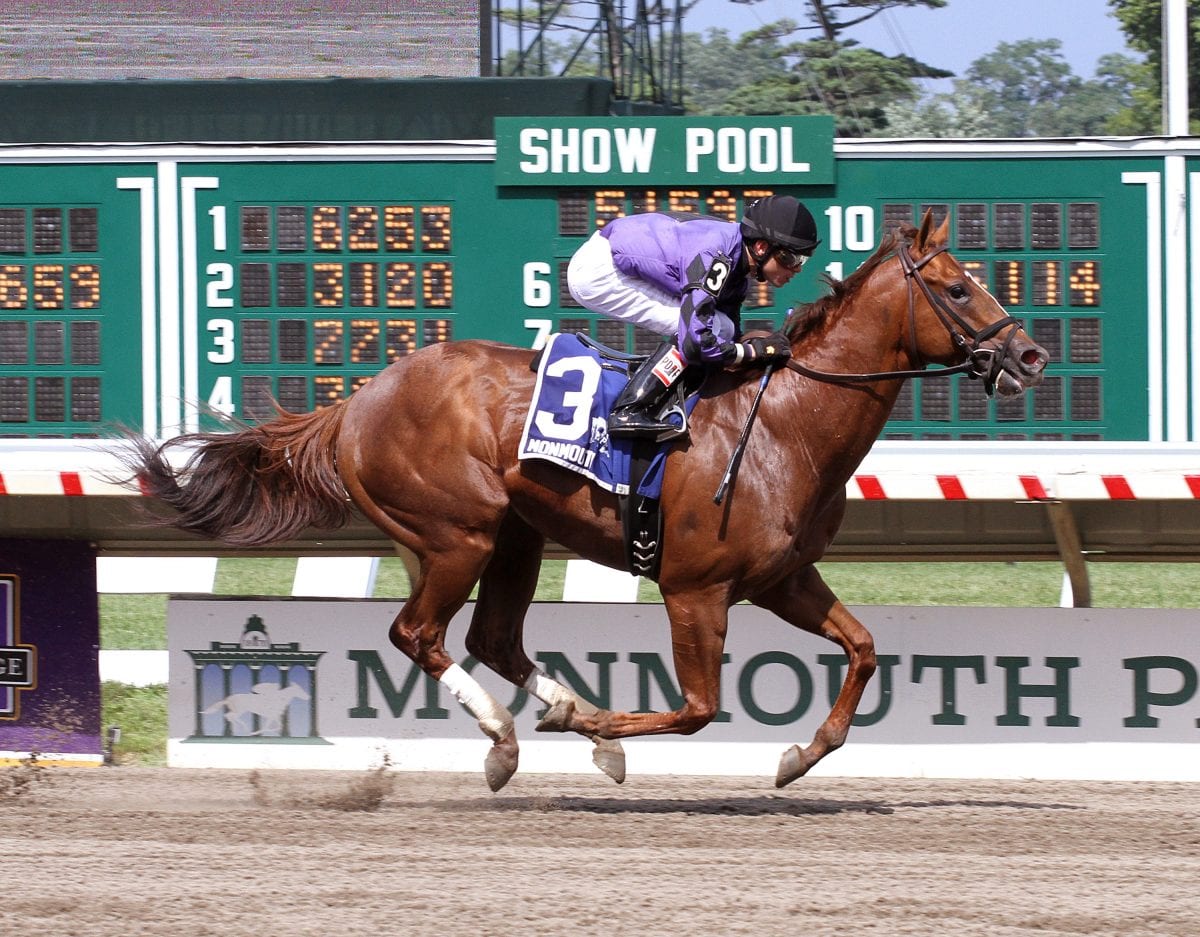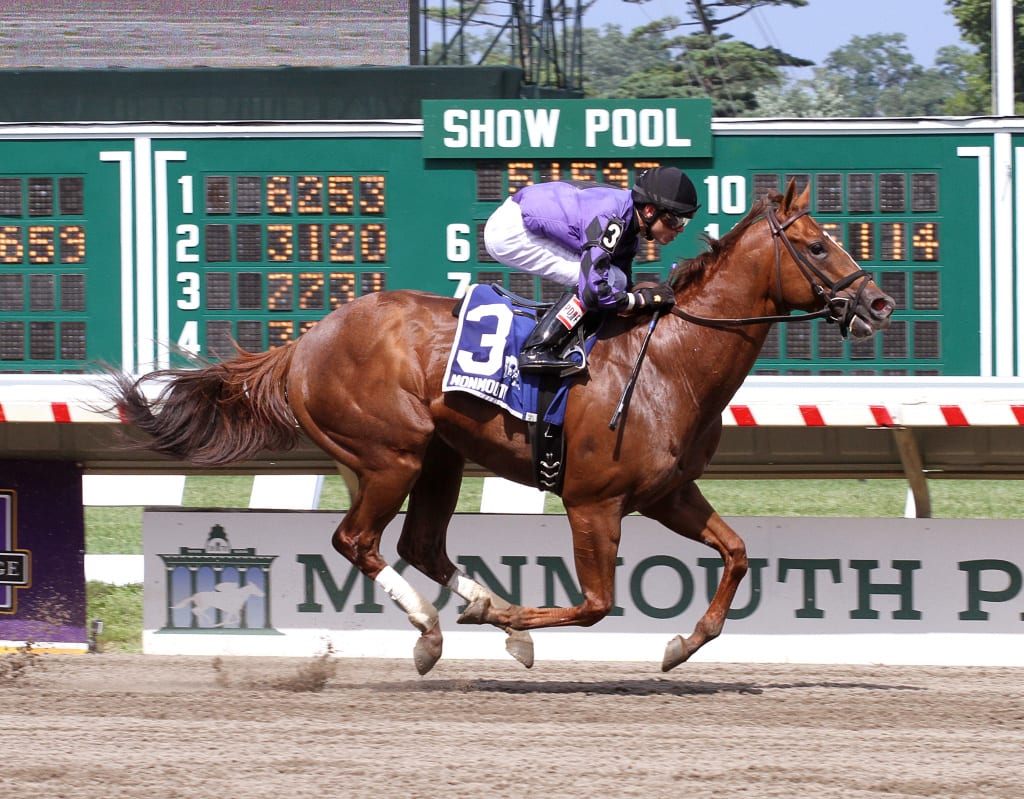by Frank Vespe
Faced with declining race days and dwindling funds, the Thoroughbred Breeders Association of New Jersey’s board of trustees is seeking to change the NJ-bred incentive program. The new program, which was approved by the trustees on February 10, will be discussed at a membership meeting on the Monmouth Park backside Saturday, April 18, before being taken up by the state Racing Commission at its May 13 meeting. The Commission’s approval is necessary for the program to take effect.
The goal of the new program, according to a letter from TBA Executive Director Mike Campbell, is to ensure that the breeders, owners, and stallion owners of New Jersey-bred runners receive moneys earned in a timely manner while guarding against shortfalls in the fund.
Under the new proposed program, a set percentage of the total fund will be dedicated to each category of recipient — breeders, stallion owners, and owners. In addition, the trustees have proposed to provide awards for horses that compete successfully out-of-state.
The changes were necessary, Campbell said in his letter, because the organization has seen its revenue crater in recent years. When the state of New Jersey, in the guise of the New Jersey Sports and Exposition Authority, exited the racing business and instead leased the track to the state’s horsemen, it took with it a $775,000 annual grant. What’s more, Campbell said, the closure of five Atlantic City casino racebooks, along with that of the Atlantic City Race Course’s off-track wagering facility, has taken another six-figure bite out of the organization’s finances. All told, the revenue loss amounts to $899,000.
“We’re solely dependent on the handle,” Campbell said in an interview. That means the state’s breeder program, like New Jersey racing itself, does not have tools, including revenue from other gaming sources, available to most of its nearby competitors.
In addition, the state has seen significant shrinkage in its racing calendar. Just 71 days of live racing are scheduled for 2015, with 58 of those at Monmouth Park and the rest slated for The Meadowlands. That leaves long chunks of time during which New Jersey breeders have been previously unable to earn bonus moneys.
“When you consider there are only 71 days here, it’s kind of hard [for breeders to] make money,” Campbell said.
Under the proposed program, awards will be split as follows:
[su_list icon=”icon: check”]- 50 percent of the fund will be reserved for the breeders of NJ-breds that finish in the money in a race in New Jersey, on a pro-rata basis;
- 7 percent of the fund will go to breeders of NJ-breds who are the offspring of New Jersey stallions and that finish in the money;
- 9 percent of the fund will go to owners of NJ-breds that finish in the money;
- 9 percent of the fund will be reserved for the owners of New Jersey stallions whose offspring finish in the money;
- 15 percent of the fund will go to the breeders of NJ-breds running outside of New Jersey and finishing in the money.
To be eligible for bonus funds from races run outside of New Jersey, the race in which the New Jersey-bred horse finishes in the money must take place at least 30 days prior to the first scheduled meet held in New Jersey for that calendar year or at least 30 days after the conclusion of the final New Jersey meet of the year. In practical terms in 2015, that would mean a race run between January 1 and April 9 or after November 30.
The remaining 10 percent of the fund will be used to administer the program.
Campbell said that the purpose of Saturday’s membership meeting is to educate the organization’s membership about the proposed new program. “We’re just trying to make sure everybody’s straight on it,” he said.
He said that, because the new program is based on percentages of the fund, rather than fixed amounts, the organization would likely make two payments to recipients. The first would come in December of the year in which the moneys were earned, and the second would be a “true-up” the following spring once the total amount of the fund had been realized.
Campbell declined to speculate on whether the the New Jersey Racing Commission would approve the proposal, before adding, “I hope so.”








